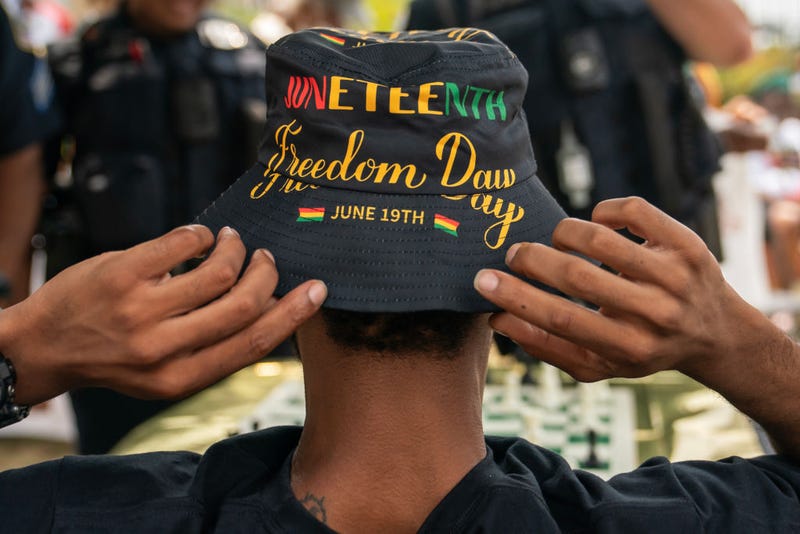
While it may still be a new federal holiday, Juneteenth has been celebrated by Americans long before President Joe Biden gave it federal status in 2021.
Juneteenth is the celebration of the day that slavery ended in Galveston, Texas, two years after the Emancipation Proclamation was issued in 1863, ending the practice of slavery in the Confederacy.
While the Emancipation Proclamation may have freed enslaved Black people on paper, it took some time for the news to spread, not hitting Galveston until 1865.
But, many have shared that celebrations of the holiday are complicated, as Montclair State University professor of history Leslie Wilson shared with NPR that it isn’t about celebrating the history of the day, but its symbolism.
“The symbolism of Juneteenth is the transition from slavery to freedom,” Wilson shared.
Wilson shared that the holiday was at first celebrated by Black Americans in Texas, but throughout the years, has spread to other parts of the country.
“You could say that Juneteenth had a renaissance, largely because when World War II was over, and soldiers came home, it was the second Great Migration. People started traveling from various points in the South to points in the North and points in the West,” Wilson said.
Texas was the first state to make Juneteenth an official holiday, and before it became federally recognized, 47 states recognized it as a state holiday.
Federal recognition
Recognition for Juneteenth began growing as the number of people celebrating it grew. Eventually, some called for it to be made a federal holiday, most notably an 89-year-old Opal Lee.
Lee, who is now 96, made headlines in 2016 when she walked more than 1,400 miles from Fort Worth to Washington, D.C., in a campaign to make the holiday federally recognized.
While Lee may have had to wait a little bit longer, her efforts eventually paid off, and she has since received numerous honors, including being nominated for a Nobel Peace Prize in 2022.
Since the holiday has become federally recognized, more Americans have become aware of it and why it’s celebrated. In 2021, only 37% of American Adults knew something about Juneteenth, a number that jumped to 60% just one year later, Gallup polls showed.
Now, experts like Greg Carr, an associate professor of Africana Studies at Howard University, say that Juneteenth has symbolically become a “litmus test for the possibilities of this country.”
“Juneteenth celebrations are a chance for this country, for the United States, to rethink not only its origins, but the relationship of everybody who lives in this country to each other,” Carr said.


